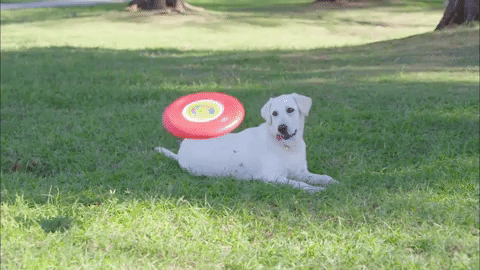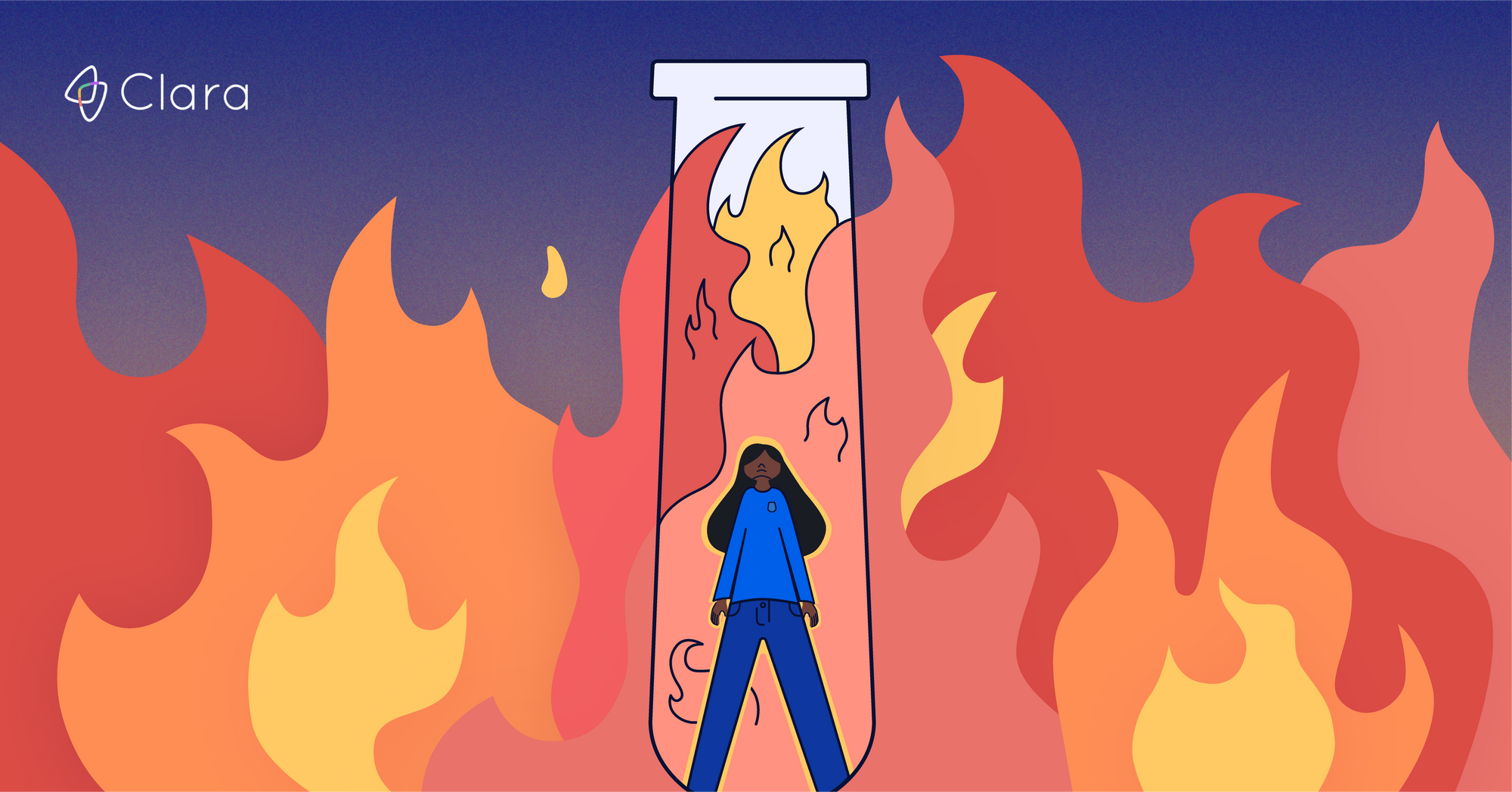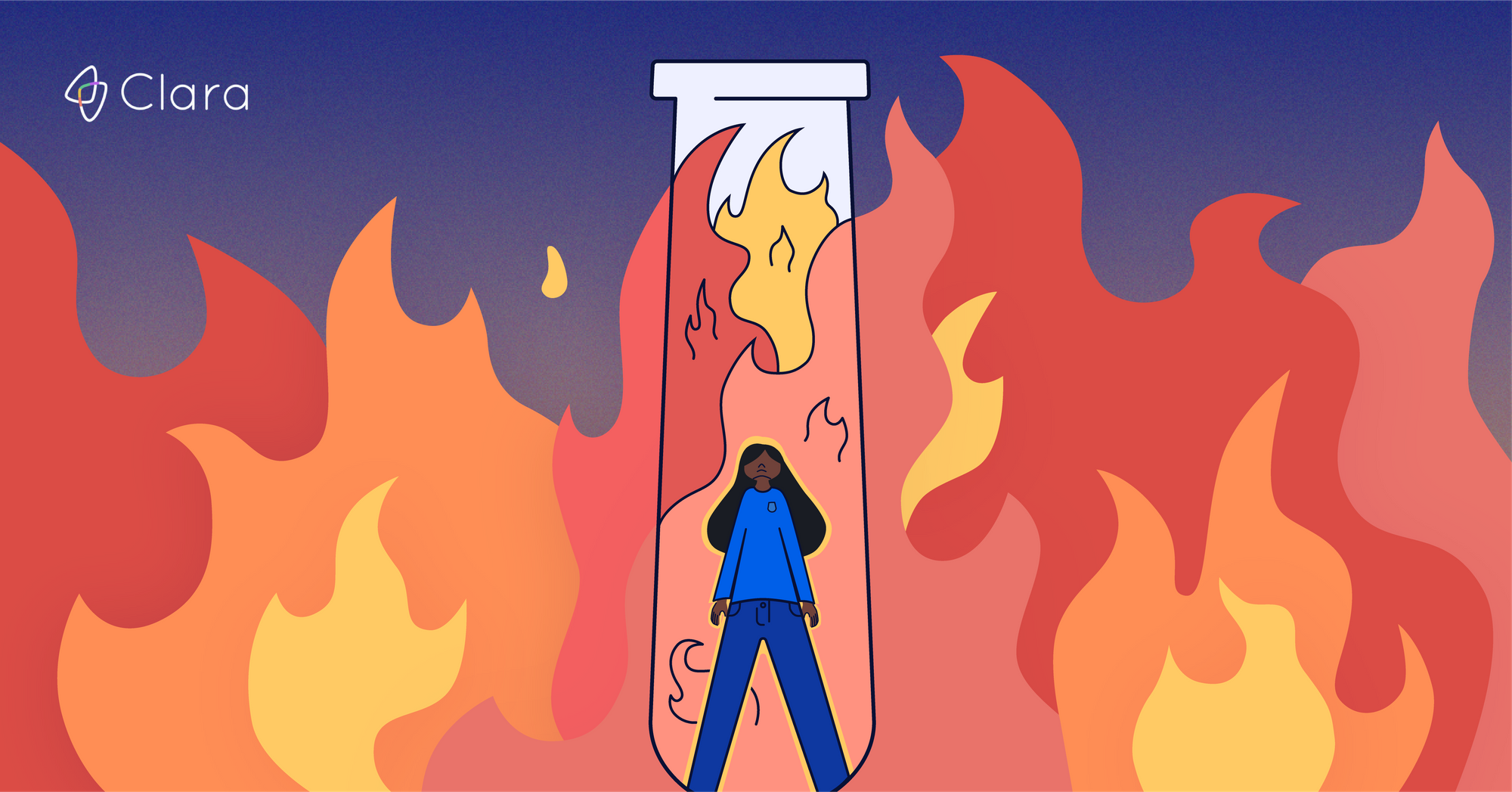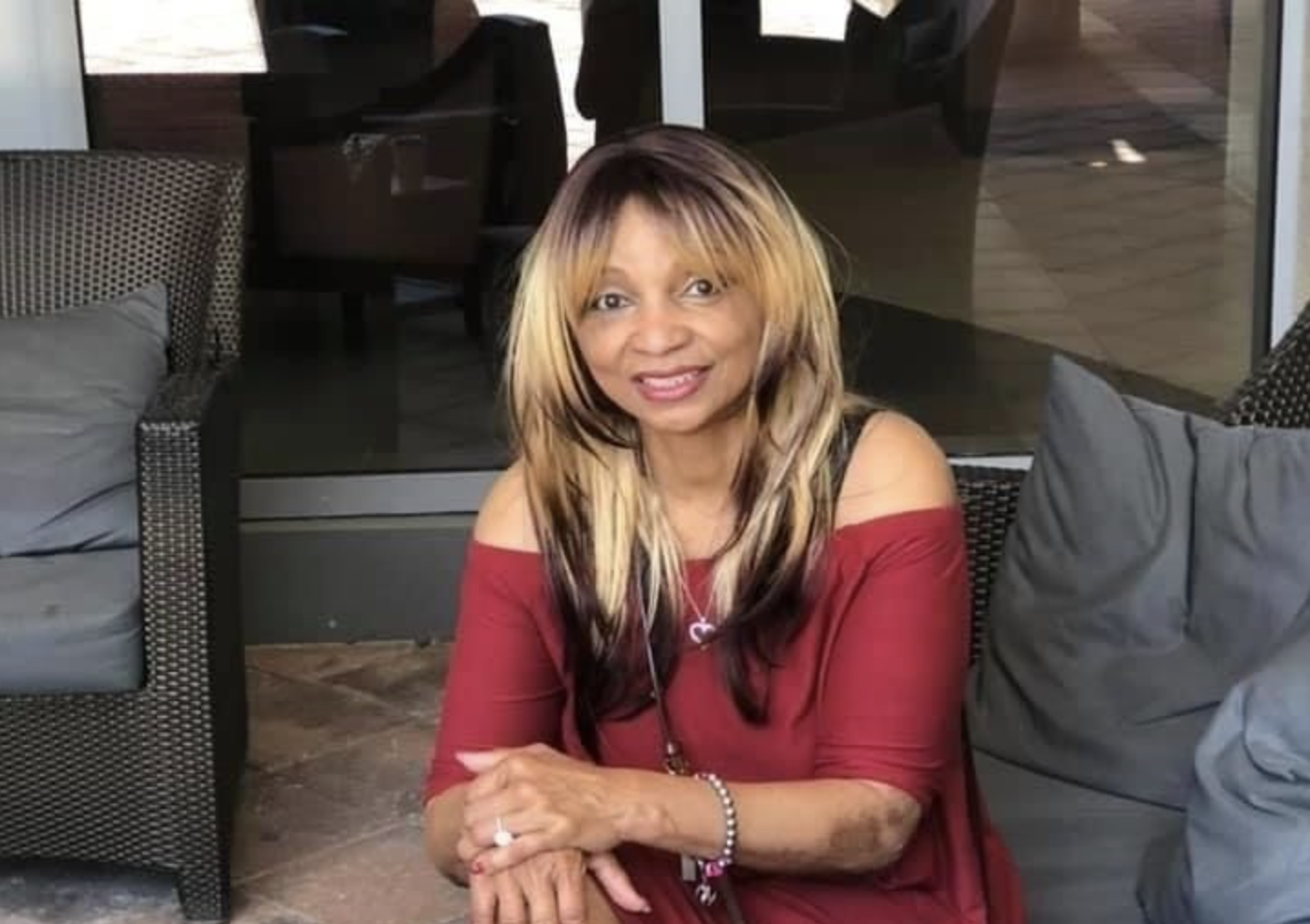Our latest Patients Have Power episode is called "A fiery ball of rage", (You can subscribe to the podcast at Apple Podcasts, or listen to it with the media player above).
In this episode, I sit down with Anna Evangeline - aka Six Hips - for a frank and open chat about advocacy and her own health journey. Anna details her multiple surgeries, the long hospital stays and fighting for the care that she needs, the anger that she still feels about the things that have happened, and how honesty and raw storytelling helps spread stories more effectively.
Below is a transcript for your reading pleasure!
Lilly Stairs: Hi, everyone, and welcome to the Patients Have Power! podcast. Today, I have one of our Clara advisors with us, Anna Legassie. Did I pronounce your last name right?
Anna Legassie: Yes.
Lilly Stairs: Legassie? Okay, I realized I didn't ask you before and I've never asked you in all this time we've worked together.
Anna Legassie: You've never said it out loud, you've just read it.
Lilly Stairs: Yeah, that's what I feel like.
Anna Legassie: No, you're good.
Lilly Stairs: Okay, excellent. Full disclosure, we are sitting here with a glass of... Rosé?
Anna Legassie: Rosé.

Lilly Stairs: Yeah, and I think that's great.
Anna Legassie: I'm glad that we're not in trouble for this and we can say this out loud and acknowledge it.
Lilly Stairs: This is the real deal, this is the real deal. We have Anna with us today, Anna is a phenomenal advocate. A lot of you probably know her as six hips online.
I am not going to take too much time introducing her because I want her to really share her story, but she's just been a rockstar advocate now, for many years, working with the Arthritis Foundation, working with countless companies, doing a ton of work on social media, doing policy work.
She's really covered everything and has fought so much for all of us patients, and so it's an honor to have you here today, Anna.
Anna Legassie: Thanks, Lilly.
Lilly Stairs: Of course, of course. Do you want to take, I mean, we were joking about this earlier, I know it's hard to get your story down into five minutes, but if you want to give us the fun umbrella overview of your journey, that would be awesome.
Anna Legassie: Yeah, I'll try to, yeah, so I was originally diagnosed with systemic juvenile idiopathic arthritis at 11, so a lot of people know it as SJ or Stills disease, but I'd actually gotten sick three years earlier.
Really nothing major, right? I just started complaining of mostly, I would say joint pain, but really it was just knee pain. Our family pediatrician understandably just attributed this to growing pains, and, "Go home, take Children's Tylenol. We'll just keep an eye on this."
Over the course of the next, I guess three years really, it escalated from just knee pain to all-over joint pain, to fevers, anemia, excessive bruising, gosh, fatigue, nausea, vomiting, rashes, sort of this whole patchwork quilt, really, of idiopathic symptoms that nobody could figure out because they don't really line up with anything in a complete picture.
Anna Legassie: I was really cool, and I played the clarinet in my junior high/middle school band, and we were getting ready for our Christmas concert - so right before the holidays.
I'd been sitting for a period of two or three hours practicing, and when I went to stand up, my legs just went out from me completely, and I collapsed.

Anna Legassie: Really, if you think about it, to have had such a rare form of arthritis just advancing aggressively for three years, my body was just completely sort of at the end, at critical mass at this point. My mom was on her way to pick me up already, I was a direct admit to the hospital.
I was there for a week.
Lilly Stairs: Wow. How old were you again?
Anna Legassie: I was 11.
Lilly Stairs: Wow.
Anna Legassie: I was originally tested for leukemia, cancer, and it was really like process of elimination before anybody really started talking autoinflammatory, autoimmune. Because one thing that's important to understand is that SJ is an autoinflammatory condition, and when I talk about having RA today as an adult, I actually have a positive rheumatoid factor too.
I have autoinflammatory arthritis from my SJIA, and autoimmune arthritis from having the positive rheumatoid factor, and having RA.
Lilly Stairs: Can you, and I want you to finish your story, but can you tell us the difference between autoinflammatory and autoimmune?
Anna Legassie: Sure! We'll go back to that. So basically, I'm in the hospital, process of elimination, somebody finally checks my Sed rate (erythrocyte sedimentation rate) and other inflammatory markers, and that's where we get this diagnosis of SJIA.
I think one of the things that is really different, I don't want to say different about my diagnosis, but when I meet a lot of older adult patients that were diagnosed as adults today, what's very different for me is that I was diagnosed pre-biologics.
There was nothing.
You had our good friend, methotrexate, I say it very tongue-in-cheek, you had steroids, and you had NSAIDs. Everything was very much symptom management, it was very palliative, and it was really nothing at that point to slow or stop the progression of my disease.

Anna Legassie: Get sick at 11, three years later at 14 have bilateral hip replacements as a freshman in high shool. Sophomore year in high school and junior year in high school I had knee surgeries, not knee replacements. As a sophomore in college, I had a revision of my right hip replacement, that was the first time that that original joint failed.
Two years after that, sort of in the midst of all my own health stuff, I lost my mom after a very long terminal illness, and let's see, four years after that, I had what my surgeon very melodramatically liked to refer to as "a catastrophic failure of both my hip replacements", and was really insistent at that point that there was no medical reason that I was up and walking.
Anna Legassie: I had a bilateral revision surgery, which meant a few months in a rehab hospital afterwards recovering and relearning how to walk.
At my six-month check-up from that surgery, we found out that that the bone graft in my right hip didn't take or stick, so to speak, and so about a year after that surgery I had surgery number four on my right hip, getting a little bit closer to present day, and just leaps and bounds that were all the other things, right?
Trying drugs, failing drugs, not having money to access drugs, all these things that have happened along the way. I try to just go for the key moments, the big guys. A couple of years ago, this was 2016, I started seeing a hand surgeon for my wrist. I have so much damage in my wrist that it's more or less time to fuse or replace.
But we went a different route and instead severed five major nerves in my wrist to effectively cut off the pain pathway between the damaged joint in my brain so that I don't have to have a fusion yet, and I can keep doing things like yoga and lifting weights and riding my bike and all these things that I love.
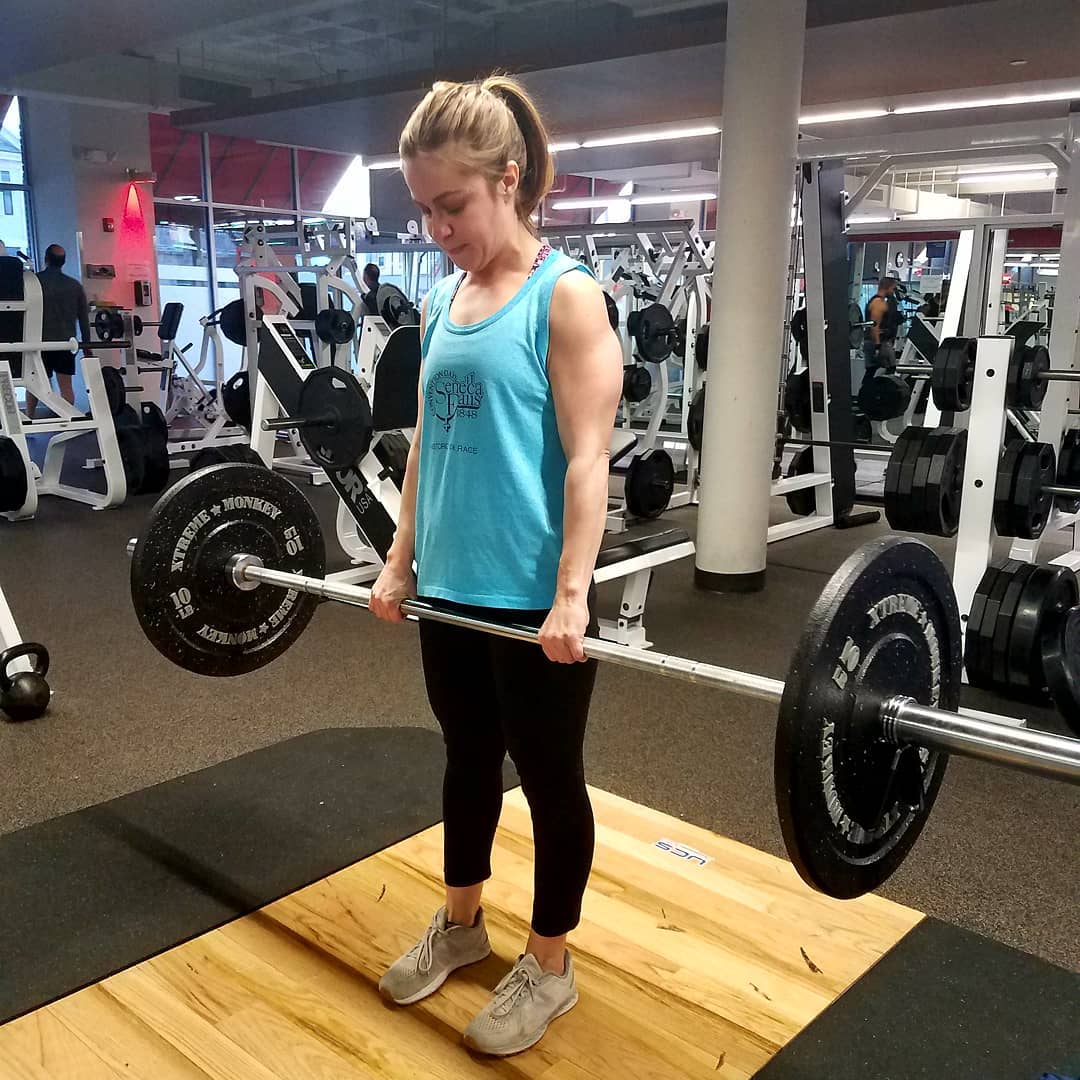
Anna Legassie: Last year, in February, I had my third knee surgery. It was really like a sports surgery to repair a meniscus, but uncovered a ton of damage that even an X-ray or a good MRI didn't really show, so kind of hedging my bets on when I'll have to have that knee replaced.
Then, 2018 has started off with a bang, man. I've been in the ER with ruptured ovarian cysts, I've been diagnosed formally finally with PCOS, and last month I spent almost a week in the hospital with infectious colitis due to E. coli.
Lilly Stairs: Oh, God.
Anna Legassie: My life is a circus. It's just kind of how I describe it to people.
Lilly Stairs: Well, I appreciate your honesty and you sharing everything that you've been through. As a patient and an advocate, you have done an amazing job really chronicling and detailing everything that you've been through.
Anna Legassie: I think that, I mean, social media really isn't that much different for those of us that are sick versus those that are healthy. I mean, you can definitely take this approach of just really showing very nice, composed moments and snippets and vignettes of your life if you really wanted to. I mean, that's what you can do.
I think to a certain extent that's what I did at first. I was doing a lot of advocacy stuff separate from social media for a long time, and my social media was really just sort of this personal space for me. And I realized that that was very much a tool for advocacy - it was great way to connect with other people, it was a great way to connect with other opportunities, if I'm being 100% transparent.
Anna Legassie: When I started sharing my story on social media, I felt this really self-induced pressure to kind of be almost inspirational to people. I didn't ever want people to think that I was mad or sad or angry or felt sorry for myself.
And then I just think it started to feel really inauthentic, because that's not how I am in my day-to-day life.
I did a different interview this morning, this woman was like, "Well, what sorts of fuels me?", and before I could even stop myself, I was like, "Honestly, I am still pretty angry at a lot of the things that happened to me - and anger, whether it's working out or advocating, a lot of times the things that I do to try to bring positive things into my life are really just fueled by my anger at all these things that have happened to me."
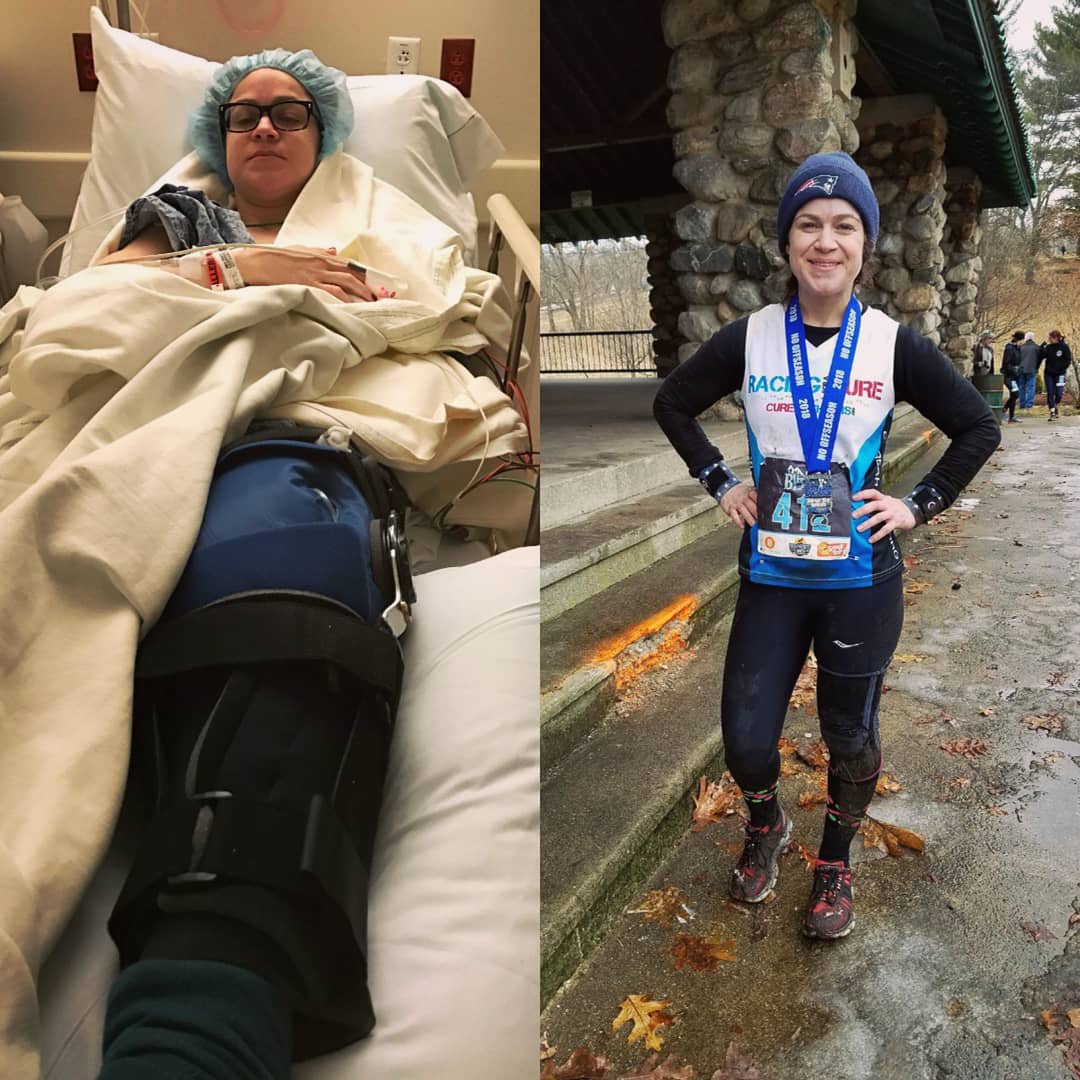
Lilly Stairs: For you to say that, and I know it's not your goal to be inspirational in saying that in any way, shape, or form -
Anna Legassie: Oh, no. I'm so over that whole inspirational thing.
Lilly Stairs: But it is - but your ability to be honest about that and raw about that is, I think, what so many advocates connect with. And so that's really important, and thank you for doing that.
Anna Legassie: I mean, I've gotten to a place in my patient journey where I really want to be connected with authentic people, and people who handle all these different things that we're through in a fashion similar to how I'm doing things.
I'm not suggesting that everybody go out and talk about how they're a fiery little ball of rage - which is how I very often describe myself. If that doesn't work for you, don't do that, but I've gotten to the point where I'm not really interested in participating in this everybody's trying to find their brand and this really nice, composed sort of view.
And even outside of the chronic illness community, other people are doing the same thing, too, right? That just doesn't resonate with me anymore. And sometimes I hope that if I just kind of put all of my messiness out there... I think I captioned an Instagram photo once talking about cleaning vomit out of hair earlier that morning.
I would rather connect with people that that style resonates with than just sort of, "Everything's perfect."
Lilly Stairs: Switching gears a little bit, and we were talking about this earlier, you've just gotten out of this hospital stay for infectious colitis.
Anna Legassie: Yes.
Lilly Stairs: Now, we sort of touched on earlier the conversations you had with the physicians in there about, "What about altering your diet? Could that be a factor?" Can we dig into that a little bit?
Anna Legassie: Basically what happened is I ate a bad burger and I got E. coli. So if you're listening to this in the near future, please listen to the CDC and throw out all your romaine. E. coli is no joke. It is a thousand times worse than I could ever even explain to people.
When I was in the ER and they did the initial CT of my scan of my belly, the PA walked in and was like, "Can you take morphine?", just looking at what my insides looked like. To which I said,
"No. I'm allergic. What else have you got for me, friend?"
But I want people to realize that's how serious of an infection E. coli is, that they took a look at that imaging and came in, in this climate that we live in today with pain medication (especially in the ED setting) and said, "Do you want morphine?
This is how serious this is." I'll be honest, it hasn't so much been my doctors necessarily suggesting dietary changes. I, on my social media, opened up about this quest that I'm on to heal my gut. E. coli does not respond to antibiotics, this is a self-resolving infection, and so as an immunosuppressed patient, self-resolving is taking a little longer than we would like.
In this quest to open and share about this too in a really honest way about what I can and can't eat right now, I've had a lot of messages and comments come in about what people interpret as being gut healing, and what they really think I should be doing.
Anna Legassie: It's really, it's hard to put yourself out there, and this happens to patients all the time, right, we put ourselves out there and people constantly are commenting on how and what we do and how we treat ourselves and stuff.
It's really frustrating to me right now how insistent people are that everything I'm doing is wrong.
For example, the fact that we're drinking wine right now has not gone unnoticed to people, I'm sure that some people are sitting there rolling their eyes, like, "Well, you can't heal your gut if you're drinking wine." Listen, life is all about choices and long-term and short-term trade-offs.
Actually, what's really interesting right now is that I saw my GI yesterday and I've developed gastritis as well.
Lilly Stairs: Just add it to the list, that's fine.

Anna Legassie: My GI is really adamant that the reason that I have gastritis is because prior to this starting, eat inga diet that's really robust in fruits, vegetables, and lean protein. That's kind of my jam.
Now, as you're on this bland diet that's designed for any sort of colitis, or any sort of inflammation of your gut, it's a lot of toast. And when they say toast, they're not talking about hippie organic bread with flax seeds that's only sweetened by apple juice, they're talking about white Wonder Bread, which is not in my usual routine.
My GI really thinks that I've developed gastritis because I'm usually eating this very prescriptive - I don't want to say prescriptive - it's not overly prescriptive, I eat ice cream every single night over the summer, guys, just to be honest about that.
But I really strive to eat this really healthy, whole foods type of diet, and it's actually going in the opposite direction and eating this really bland carb-heavy, sugar-heavy diet that has now angered my stomach separate from my intestines.
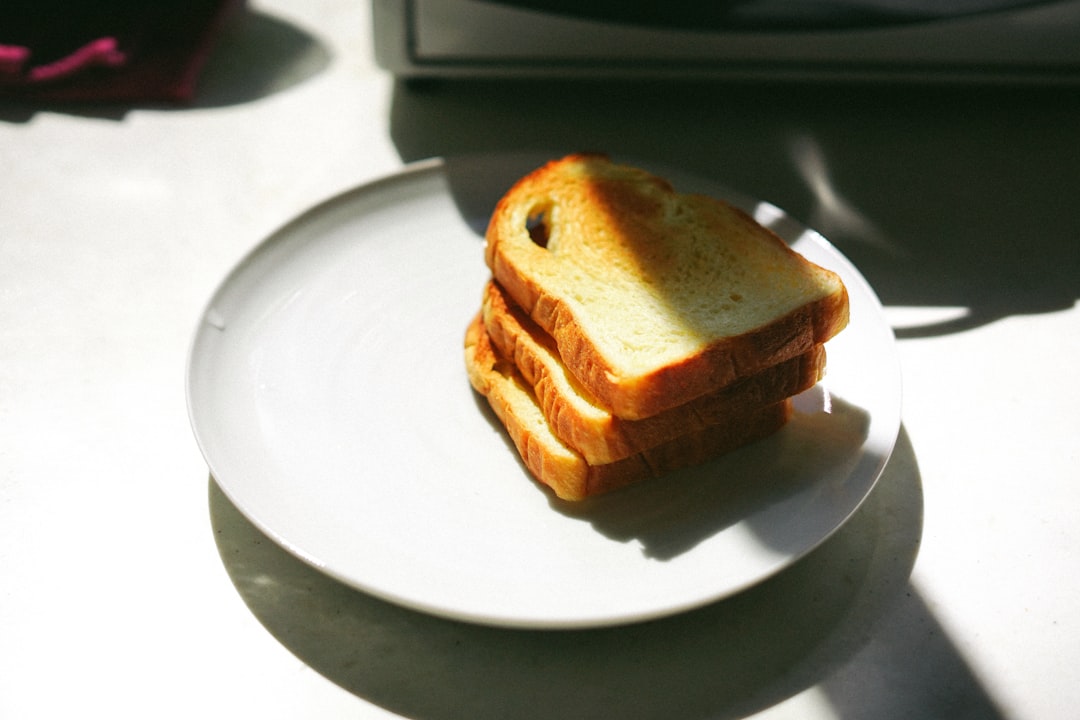
Lilly Stairs: It's like you just can't win.
Anna Legassie: I can't win, but what I said to her yesterday, because she was asking me, she was like, "When does the gastritis flare? When do you feel this pain?" I said, "It's when I eat these more complex meals. It's when I try to do grains, it's when I try to reintegrate protein."
She's talking about gastritis, and I'm like, "Oh, my gosh, should I stop eating these meals?", and she's like, "No, no, no. I will give you meds to help your body eat these healthy whole foods. That's actually the best thing for you right now. We need to get you back to your normal, back to your baseline."
She said, "Because part of that is just figuring out, are you healing? Are you kicking this infection? Are you beating this gastritis? Are things starting to calibrate back to normal for you?" She's saying,
"If we keep you on a bland diet forever, we're never going to figure that out."
Anna Legassie: I'm doing the work - and we talked about this earlier, I have my PCP, my rheumatologist, my GI, and I've had a dietician on my team since I was a peds patient. It's something that my hospital feels very, very strongly about. So I've seen a registered dietician since I was 12 years old. I have somebody whose career is based in nutrition, so I feel like I'm doing everything right.
But I feel like this, if I listen to what other people were saying, it's that I'm not doing anything right. And it's my fault that it's taking me so long to get better.
Lilly Stairs: Well, that's really powerful for you to talk about, that diet has been a part of your journey since you were 12. But you will hear online - and this is what we were talking about earlier - is that it feels very polarizing sometimes.
Anna Legassie: Absolutely.
Lilly Stairs: The online communities it's like all or nothing. "I am not doing any medicine, I am only doing food for healing my whatever, my Crohn's, my autoimmune diseases, my RA," or it's you're all the way on the other side and it's, "I only do my medicines, diet doesn't have an impact. These people who are talking about diet are crazy."
I mean, it feels like there is no happy medium.
Anna Legassie: Right, and I think the worst part of it is that if you listen to either end of the extremes, the biggest takeaway that you could put upon yourself is that you are somehow not doing enough.
If you're not trying to treat yourself with diet, or you're not all-in on your meds, or you selectively take your meds, really what this does is condition you as a patient to somehow, you're not trying hard enough to get better. I think that, as a community, we tend to put that on outsiders, right?
My boss has a pulled muscle in his back right now, and we had a meeting just yesterday, and he was saying how in the past 48 hours he can't believe all the unsolicited advice he's gotten about heat versus ice versus PT. And he looked at me, and this is why my boss is awesome, he's like, "This must be what it's like for you all the time."
I'm like, "You have no idea."
Anna Legassie: We tend to point the finger, right? At people who are healthy who don't understand what we're going through. And honestly that bothers me less, when somebody who's uninformed about my condition is like, "Anna, have you tried yoga?"

Anna Legassie: And I'm like,
"Sure have, still have an incurable disease."
I can sort of brush that off, that's their ignorance, and also is it necessarily this person's fault that they don't know everything about autoimmune diseases? I don't necessarily feel that way unless somebody's really aggressive with me or trying to sell me something, then we have problems. But the average person who's just like, "Oh, I read something that yoga can help!"
Those people are not trying to be mean, they're trying to help.
Lilly Stairs: They're trying to help.
Anna Legassie: We all need to take things with a grain of salt. I get more frustrated within the patient community when somebody bullies their way into my messages and starts telling me what I should or shouldn't do.
For starters, if you follow me on Instagram, you see that I eat pretty healthy - really healthy, actually. But you also only see a snippet of what I'm showing you, so to come in and suggest that I do anything in this authoritative way is just - it's so unbelievably patronizing, and I have a really hard time with it.
Especially, we talked about this earlier. Listen, the first time I did an elimination diet I was 15 years old. As they say, "this is not my first rodeo."
The fact of the matter is even if I found a diet that completely cured my disease and my active disease state, I would still need my knee replaced, I will still need additional surgeries on my left wrist, I will still be contending with this delicate balance of my hip replacements.
Anna Legassie: For me, I've been really outspoken in saying this, and I don't feel bad about it at all, this disease has taken a lot from me, starting at a very young age.
I mean, I remember picking out my shoes for prom, right, and all my friends are so jazzed because they can wear high heels, and I'm like (this is before ballet flats were even in) - so I'm in old lady town trying to find shoes that I can wear to the prom that I can dance in.

Anna Legassie: The first time I - we're just going to talk about everything now. The first time I had sex as an inexperienced lady, I had to tell my first sexual partner,
"Don't be alarmed when you see my hip replacement scars."
Lilly Stairs: Wow.
Anna Legassie: There is very little lived experience that I have now, at almost 35, that hasn't been through the lens of having arthritis. So when people start talking about different diets and all these things I should be eliminating, I'm like, "No, no, no. I'm not ... "
Lilly Stairs: I've eliminated enough in my life.
Anna Legassie: I've eliminated and lost, without having a choice, a lot of things in my life. And I'll be damned if I'm going to give up slurping down two dozen oysters with my boyfriend on a Friday night in Boston in the summer.
That's what I live for.

Lilly Stairs: God, I love your honesty. It's so refreshing. I'll talk about a little bit of that other perspective, right, because, and this is why - and I'll preface this why I believe that everybody is completely individual.
For every patient, from your medicine, your medicinal treatment plan, to your diet, to your lifestyle, it is completely dependent on the person. I was diagnosed, what is it now, six years ago? So my life has not been completely colored by autoimmune diseases. It has been in the past, through college and through now, but I've been very fortunate that I was diagnosed during a time when biologics were a thing, and there were multiple biologics on the market.
I had to go through a couple, and it took me a couple of years to get it under control, but now I've been in medically controlled remission for four years.
Anna Legassie: That's so amazing. I get so excited every time you say that.
Lilly Stairs: I sometimes have the "remission guilt", but that's a whole other story. So I've had this - and yes, that there's been a lot of positives that it's brought into my life.
And so I've had this different experience where now I'm sort of like, "Okay. I'm doing really well on my medicine, and I don't think I want to give up my medicine fully - but are there other dietary changes I can make to help control some of those symptoms that I'm having. And maybe my medicine is a little bit more intermittent, maybe it's not as regularly as I'm getting it. And so I'm looking into exploring that right now, but I have been sort of uncomfortable about when people ask what I'm doing.
Because I think what I'm doing is right for me, but I don't know that it's right for everyone.
I certainly don't want to push that on anyone either, because I don't want to say, "Oh, yeah, I'm doing, I've cut out X, Y, and Z, and I've added A, B, and C supplements. That's what you should do." Because that's not what they should do, because we're all different. We are all different.
How do we, as a community, work towards having productive conversations that are actually going to support one another in all of this?
Anna Legassie: I don't even know how to begin to get at that because everything really does really feel so polarizing.
I mean, we talked about this before we started. Like I have stopped some meds recently that haven't been the right fit for me. I'm on some, gone off others, sort of introduced new supplements into my life, and talking about diet. As I said to you earlier, I don't want anybody to think that I'm sitting around eating bonbons all day.
I work really, really hard at a healthy diet, but I take this 80/20 approach and really reserve that 20% for fun and enjoyment because I love food.
Lilly Stairs: Have some pizza.
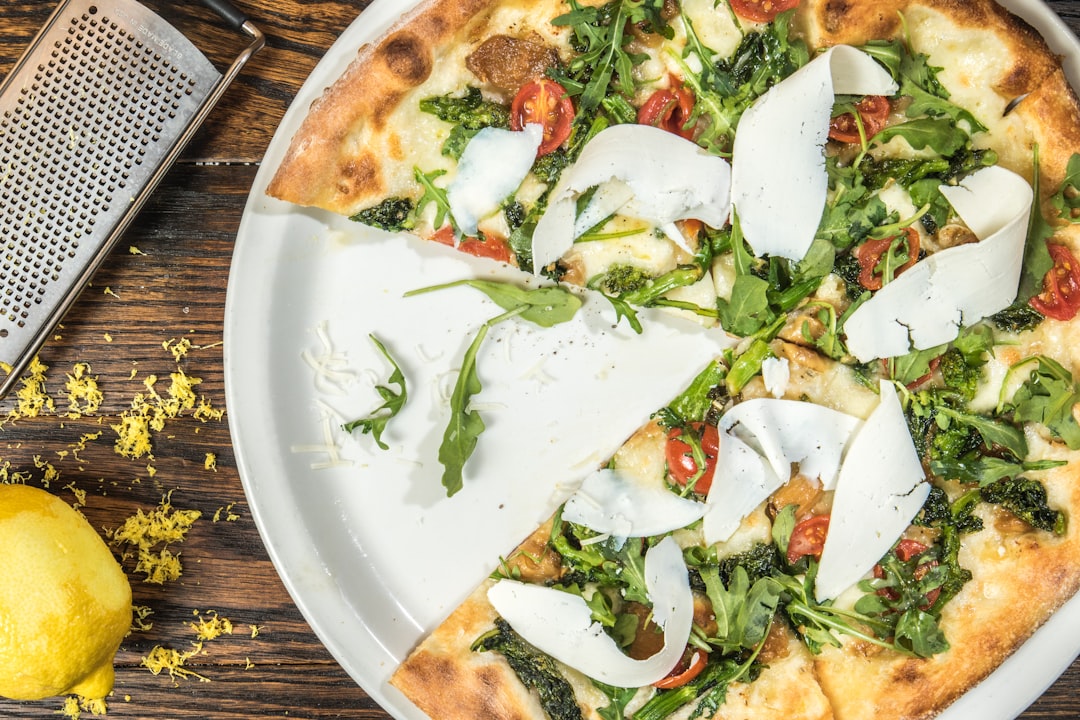
Anna Legassie: I love food. I love going out to eat. I'm a super-foodie. The way that people get excited, like, "Oh, Taylor Swift's coming to town," I'm like, "Oh, my God, did you hear that Ken Oringer and Jamie Bissonnette are opening another restaurant?" That's what I get excited about.
The idea of, and bonus points for anybody who knows who those guys are - we are already best friends and you just don't know it yet - but that's what I love. And that's my passion. I grew up in a Greek family where food is the center of everything, it's how you show love, it's how we help people cope with loss.
But for me it's a middle. I don't want to say it's a middle of the road thing - for me I've strived to be really complementary in my treatment.
Lilly Stairs: Absolutely.
Anna Legassie: My biologic, that's important, but I also feel really strongly about these supplements that I've started taking. Exercise, for me, has been so important for not just my physical health but for my mental health.
It has saved me.
I don't know who I would be or where I would be after these last few years and everything that's happened if I didn't have the ability to go to the gym and throw around some weights and kind of sort my stuff out.
Lilly Stairs: Yeah, you found this, the right combination for you.
Anna Legassie: This is what works for me, but I - to flip the conversation from diet to exercise for a minute - I have patients all the time that reach out and want to know what I do, and it's so challenging.
The first thing that I tell everybody is that I hit a rock bottom in my health and had gained some weight, and this manifested in a very melodramatic trying to get ready for date night. Nothing fit, and I broke down crying because I didn't feel sexy for my partner, and that was not a happy place to be. It was really a wake up call.
Both of us actually had a very frank conversation about the lifestyle that we were living, the hours that we were working, how it affected our nutrition at home, how it was affecting our health, our relationship, our intimacy - everything.
Anna Legassie: I didn't wake up the next morning and run a Spartan Race, that's not what happened. I started by walking the dog. Really, that was my goal, to get up every morning and try to walk the dog a mile.
I slowly started buying some light weights, some dumbbells and some kettlebells, to have at home because having been an athlete for a large part of my life at that point, I felt so poorly about myself. I was too embarrassed to go to the gym. I was doing all my workouts at home, and I did that for over a year before I stepped foot in a gym again.
Like I said, I did not roll out of bed one morning and say, "I'm going to run a Spartan Race." It's been an impossibly long journey, it has been a lot of setbacks. It's been injuries, it's been surgeries, it's been starting over.
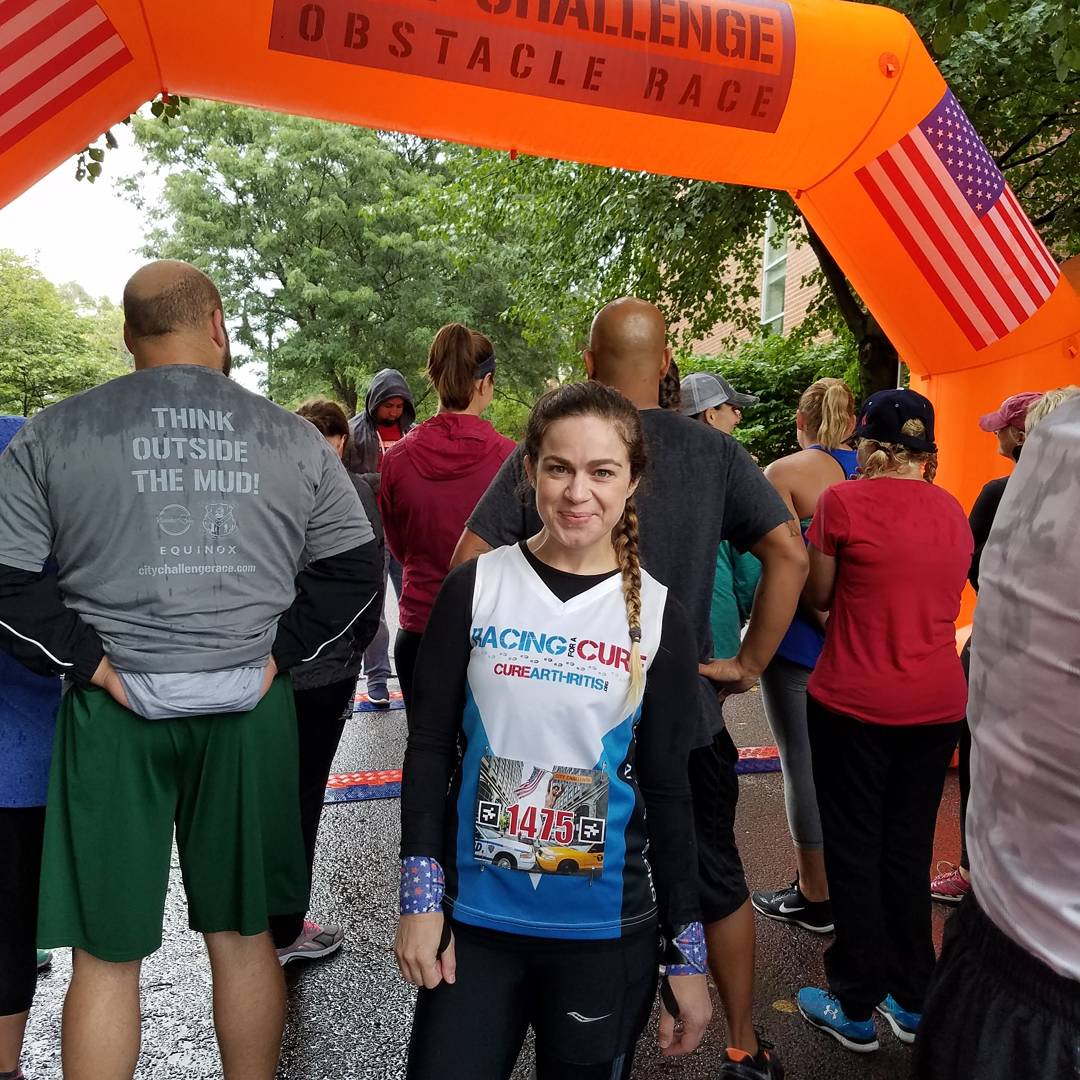
Anna Legassie: I haven't been cleared to work out since I've been sick. We're getting there, but this very much feels like I'm starting over again.
Lilly Stairs: Well, and again, to share how it's different for another patient, right, I admire that you run. I struggle, when I try to run. I find that - and I have psoriatic arthritis, so I do have the arthritis. I find that it bothers me too much and so I can't do it.
So I had to say, "Okay, I can't run, but I can do Zumba, and I love Zumba." I can't do high-impact Zumba, but I can do smooth movement, which is sexier anyway.
Anna Legassie: Meanwhile, I tried Zumba twice and I was like, "I look ridiculous. This is not for me."
Lilly Stairs: It's whatever is best for you.
Anna Legassie: It is.
Lilly Stairs: And here we are, two patients living with autoimmune, autoinflammatory diseases, and choosing different paths but doing what is right for us. It's actually interesting, because it seems like it is some combination of basically everything that's out there, but it's our own combination, it's mine.
Anna Legassie: It's mine.
Anna Legassie: Yeah, so I have patients come to me wanting to know what I do for exercises, and I'm like, "First of all, I'm not telling you that because that's irresponsible on my part," and I always try to direct people towards their providers.
There's nothing more disappointing to me than people that come back and say, "My doctor doesn't support this," because that's frustrating. I always try to tell people the bare minimum of where I started out. I started out walking the dog. And walking the dog counts as a workout.
That's a big deal, to be able to do that with this kind of disease.
I was giving a different interview earlier this week, and this woman, who was not a patient, was asking me, "Well, how do you work out?" I'm like,
"Well, for me, first of all, everything has a price."
I pay a price for what I do, which is another reason why I'm very careful about what I recommend to other patients.
Anna Legassie: There are a lot of frank conversations. There's a lot of tough love with my doctors. I drive my orthopedic surgeon out of his mind, out of his mind. He loves me and I know he's supportive, but I also drive him a little batty with this sort of stuff.
I want to be very, very careful of what I encourage people to do because I even know that my own care team sort of has these concerns about what I've decided to do. This is not the path for everybody.
One of the things too is that I have so much damage at this point that certain joints, I'm just running them into the ground a little bit faster than they would have got there already, and I'm okay with it.
That's a trade-off that I'm comfortable with, but everybody needs to have these conversations with themselves, with their loved ones, and with their care team.
Anna Legassie: Oh, but sorry - I got totally distracted thinking about how much I drive my surgeon crazy.
So this woman was asking me about working out, and how do I do this, and how do I balance everything. And one of the things that's been the hardest is to appreciate that walking the dog has its place in training for a race. That recovery has its place in training for a race.
That making the tough call to drop out of races sometimes, has its place in a bigger plan.
Lilly Stairs: Yeah. This is just, I think this so perfect, and I'm so excited that we had this discussion. Anna and I were trying to decide beforehand, because there was a lot of topics we could talk about (and we are 1,000% bringing you back for 500 more podcasts).
But I'm really glad we talked about this, because I think that there is a lot to be learned. There's a lot to glean from this, for so many. When I look at what we talk about at Clara, and this idea that patients should be empowered to make the decision that is right for them - it is all about you, and that's what this conversation is about. It's about that you should be empowered to do what is right for you.
Don't worry about what other people are saying. Don't worry about what other people are doing. Figure out what is the right thing for you to do in this moment, and maybe it's one thing this year, maybe it's different the next year. Be gentle with yourself while you're doing it.
DOG BARKING NOISES!!!
Anna Legassie: Penny! Well, if you guys do follow me on Instagram, you're already familiar with Penny, so you actually know that she's sweet and lovely, but she's also very ferocious guard dog. And we live on the first floor in Boston, so there you have it.
Lilly Stairs: Well, thank you, Penny, for making an appearance, and I feel like that is a great time to wrap up with this podcast.
Anna Legassie: Absolutely. She's not done talking.
Lilly Stairs: Thank you all so much for joining us. We will see you next week.

Connect with and follow Anna's journey on her website, instagram @anna_evangeline, and twitter @sixhips!


